12 Minutes
At the Foreign Investors Annual Summit 2025, hosted by the American Chamber of Commerce in Lithuania (AmCham Lithuania), Kęstutis Budrys, Lithuania’s Minister of Foreign Affairs, used his first public appearance since the new government took office to lay out a comprehensive, investor-facing agenda that fuses national security, economic resilience, and European leadership. In a wide-ranging address followed by an on-stage conversation moderated by Vilius Bernatonis, Budrys set out five pillars—security, support for Ukraine, defense of international law, economic security (including de-risking from hostile dependencies), and a proactive EU agenda ahead of Lithuania’s upcoming Council Presidency. This long-form report was prepared exclusively by Smarti.News.
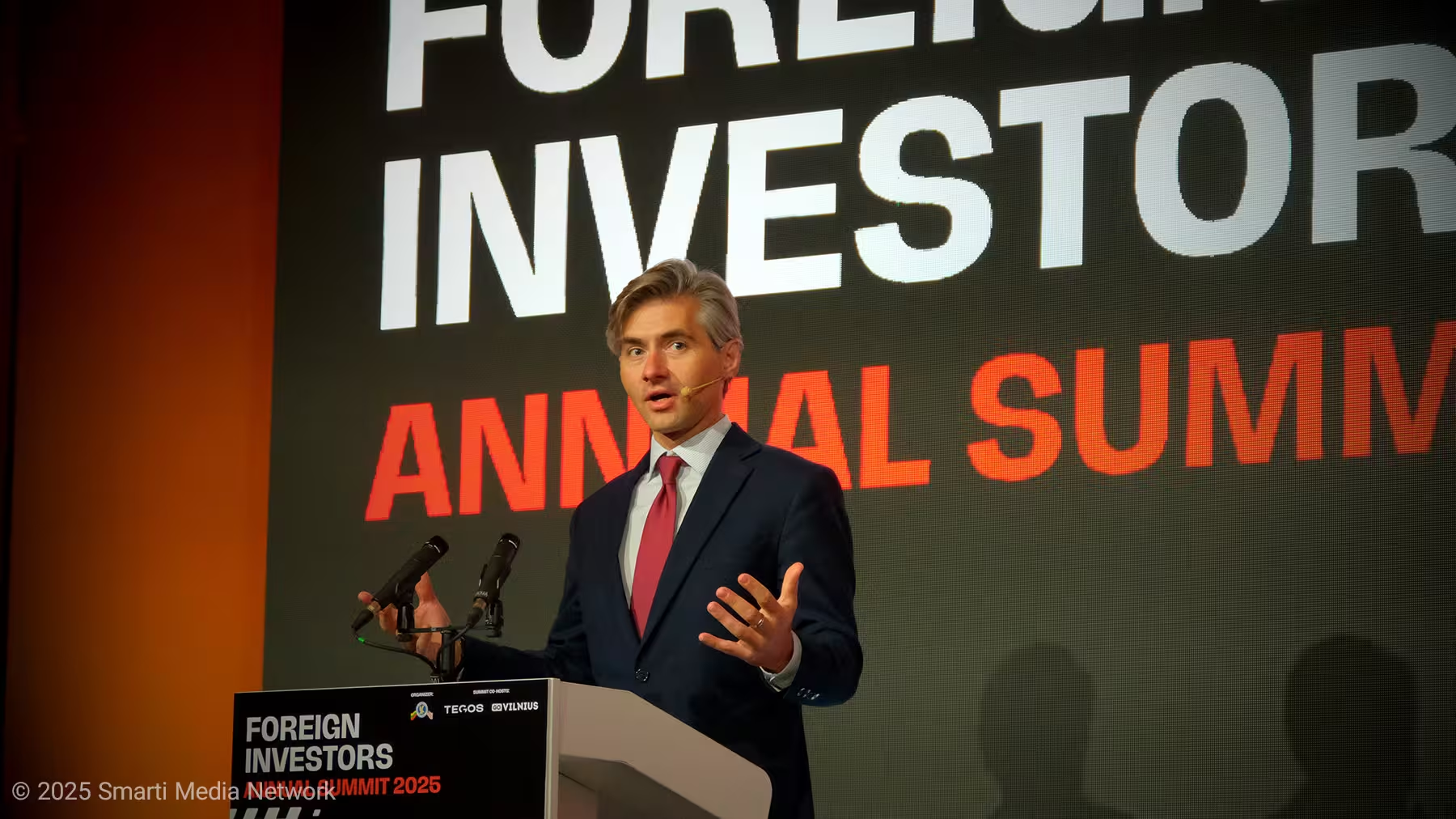
Executive Overview: What Investors Need to Know
Continuity without complacency. The “20th Government” will double down on what works—especially in foreign and security policy—avoiding disruptive policy lurches while accelerating implementation.
Security as a horizontal priority. Expect cross-ministerial action on hard defense and civil resilience (from robust infrastructure and military mobility to business continuity planning).
Ukraine as a strategic interest, not charity. Long-horizon commitments—from defense assistance to reconstruction—are framed as existential to European security and an open door for private-sector delivery.
International law as Lithuania’s shield. The country will continue to champion rule-based multilateralism, seeing it as the indispensable protection for smaller states and a foundation for investor certainty.
Economic security and de-risking. FDI screening in strategic sectors will continue; unfair trade practices will be challenged through EU instruments; supply chains will be diversified toward trusted partners.
EU Presidency agenda. Lithuania is already engineering a Presidency program focused on external and internal security, completing the single market, and accelerating Ukraine’s EU path.
Open door to business input. The government is asking companies for granular, evidence-based feedback on regulatory bottlenecks and market distortions to enable rapid, targeted fixes.
China policy—pragmatic channels, firm principles. Restoring normal diplomatic functionality is on the table without compromising on security screening, EU trade defense, or allied coordination.
Signature bets. The government’s “emblematic” contributions will include catalyzing defense industries (with budgetary and regulatory support) and opening a frontier for space technologies.
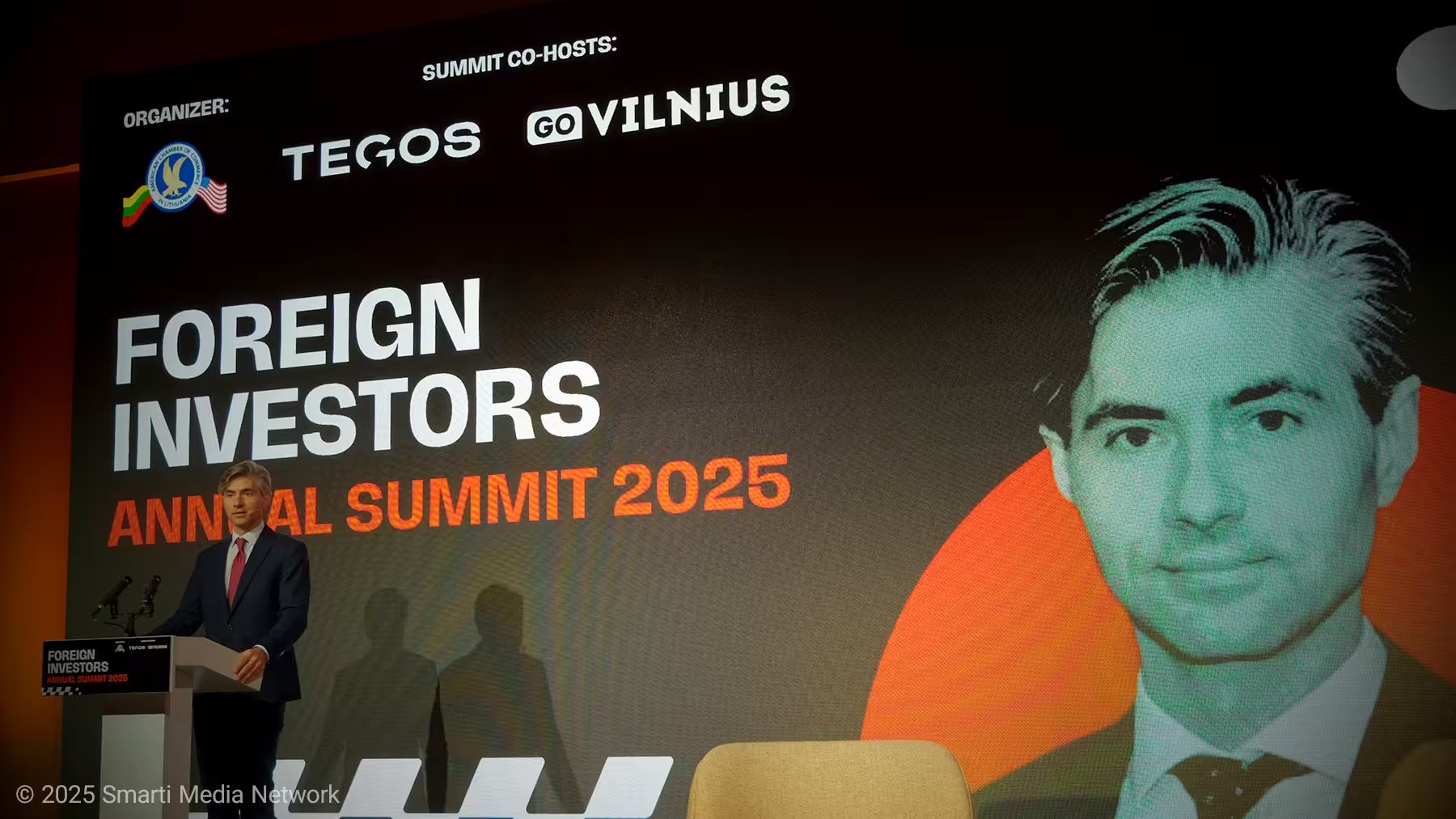
The Speech: Security-First, Implementation-Driven
Budrys opened with a candid disclaimer: in today’s environment, no one can predict the world with precision. What he could bring was “the answer to an awakening”—a clear articulation of how the 20th Government intends to execute foreign, security, and economic policy in ways that matter for business.
1) Security is not a silo; it’s a spine
Calling security “the horizontal priority”, Budrys described a two-track approach:
Hard security: Deepening and operationalizing alliance ties (first and foremost with the United States, alongside Germany and Poland), strengthening capabilities, and knitting allies closer through practical cooperation beyond the defense ministry.
Civil resilience: Delivering on NATO’s push to spend 1–1.5% of GDP on civilian preparedness—resilient infrastructure, military mobility, societal readiness, and crucially, continuity of business in a crisis. This crosscuts line ministries and draws the private sector into planning and exercises.
For investors, the message is straightforward: this government intends to lower the tail risk of geopolitical shocks turning into operational paralysis, by building redundancies and plans that keep factories running, networks humming, and logistics flowing.
2) Ukraine, seen through Lithuania’s vital-interest lens
Budrys framed support for Ukraine as a self-interested duty that underpins European security. Lithuania’s commitments, he stressed, stretch beyond the battlefield into reconstruction, governance support, and service delivery. He referenced the Central Project Management Agency’s deep footprint in Ukraine and its 200+ projects—from building shelters and schools to modernizing local service systems—and explicitly invited Lithuanian and European companies to help deliver them.
In practice, this is a multi-year pipeline of commercially viable projects, de-risked by public counterparties and perfectly suited to firms with experience in infrastructure, digital government, education, health, housing, and utilities.
3) International law as operating system—and risk hedge
For a small state, Budrys said, the difference between a rule-based and a power-based order is existential. Lithuania will keep defending sovereignty, territorial integrity, and lawful dispute settlement, not as rhetoric but as the realpolitik of survival. For companies, this translates into a national stance that reduces legal and regulatory unpredictability and aligns Lithuania tightly with Western governance norms.
4) Economic security, de-risking, and fair competition
Having learned the hard way in energy—where Lithuania now imports zero Russian energy—the government will pursue a similar logic in critical technologies and strategic sectors:
FDI screening will remain firm and targeted to sensitive assets;
Unfair trade practices (e.g., overcapacity-fueled dumping, covert subsidies) will be confronted through EU trade-defense tools;
Supply chains will be diversified toward trusted partner networks, blending domestic capacity where viable with allied sourcing.
Budrys flagged the spike in imports from China as a system-level warning, arguing that the response must be European: a level playing field inside the single market and resilience of critical inputs. The subtext for executives: if your competitive edge depends on fragile or politically exposed inputs, now is the time to re-engineer.
5) EU Presidency 2027: Drafting a no-nonsense agenda
Partnering in a trio with the Netherlands and Greece, Lithuania is already shaping a Presidency program with three focal points:
External security: practical EU-NATO complementarity, defense industrial policy, and funding for resilience.
Internal security: infrastructure protection, crisis logistics, and codified business-continuity standards across borders.
Completing the single market: dismantling granular frictions that balkanize demand and slow investment across sectors.
In parallel, the government wants a hands-on approach to Ukraine’s EU path: supporting the institutional reforms and administrative rewiring that must precede accession, so momentum is not lost in bureaucracy.
6) Policy made with the private sector, not for it
Budrys’s appeal to business was unambiguous: bring “hard examples”—contracts delayed by ambiguous clauses, licensing stuck in procedural loops, sub-EU-standard components displacing compliant ones—and the government will use its “wide toolkit” to fix them. This is a commitment to evidence-based regulation with line-of-sight to the shopfloor.
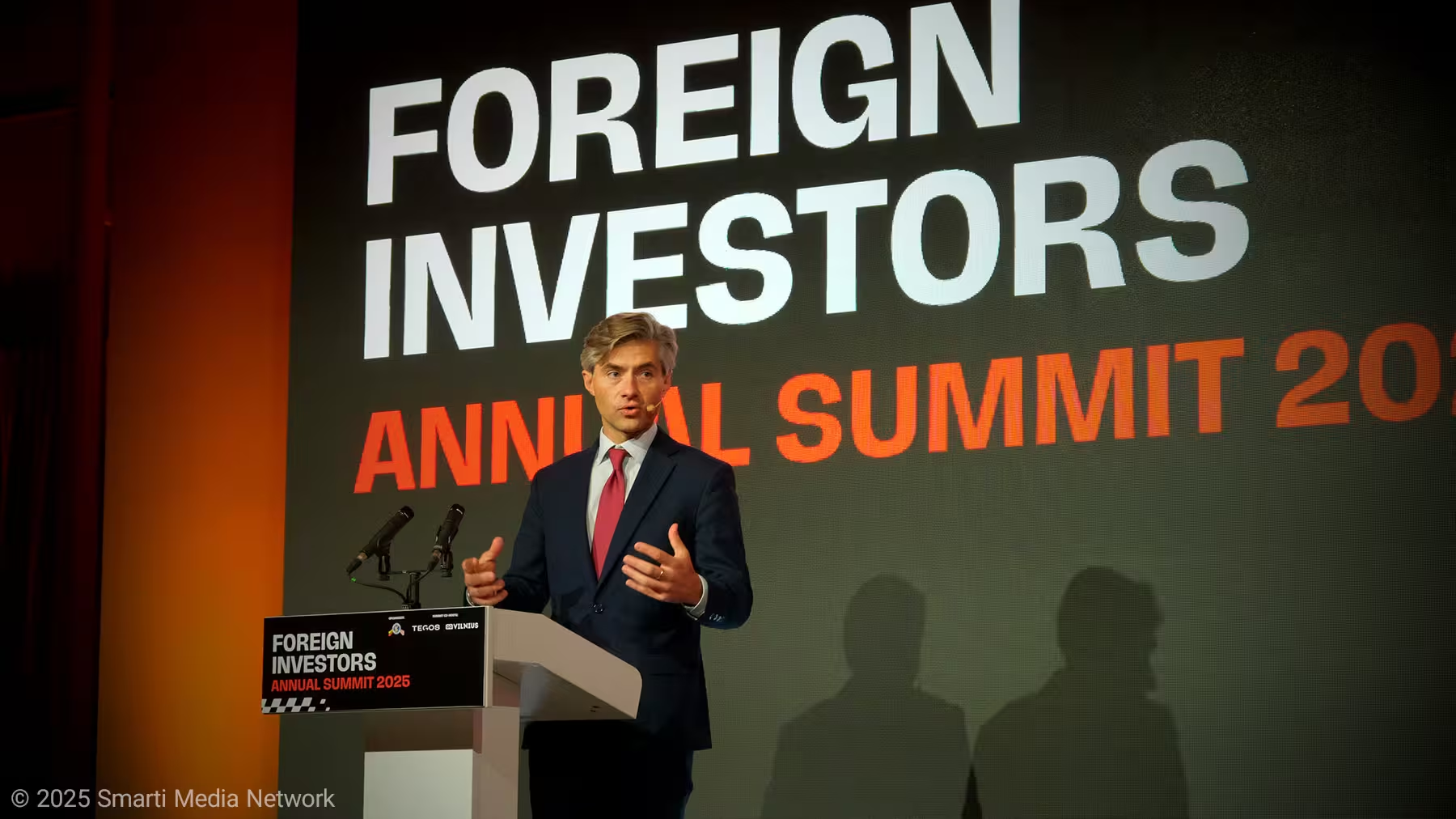
The Conversation: China, Time Horizons, and a “Signature” for the 20th Government
In the Q&A, moderator Vilius Bernatonis probed the policy edges—particularly on China, the pace of normalization, and what legacy Budrys expects this government to leave.
China: normalize channels, hold the line on principles
Budrys drew a careful distinction:
Diplomatic functionality: Lithuania wants to restore normal operating channels (embassy-level consular services, routine problem-solving) both ways—in Vilnius and in Beijing. This is partly about convenience (e.g., visas) and partly about reducing frictions for companies already active in China.
Policy fundamentals: Nothing changes on security screening of investment in strategic sectors, EU-level trade-defense actions, or de-risking where China’s practices create vulnerabilities.
Timeline? It takes two to normalize. Budrys wouldn’t put a calendar on Beijing’s choices. He reminded the room that other European cases have taken years, often hinging on broader geopolitical tides. The key is that Lithuania knows what it controls—standards, screening, allied coordination—and will move pragmatically within that envelope.
What will the “best government number 20” be remembered for?
Budrys’s answer highlighted three bets:
Defense industries: Already growing at ~20% year-on-year, now to be accelerated with funding windows (e.g., programs akin to ITIS/“green corridor”) and fast-lane regulation to attract anchor investors and scale up SMEs.
A proven template of turning shocks into sectors: Lithuania did it with cybersecurity (after early attacks) and with fintech (regulatory innovation + market need). Now the model will be applied to defense and dual-use tech.
Space technologies: A “small dream,” but strategically coherent—dual-use by nature, aligned with an EU portfolio friendly to space industrialization, and potent for branding Lithuania’s next frontier.
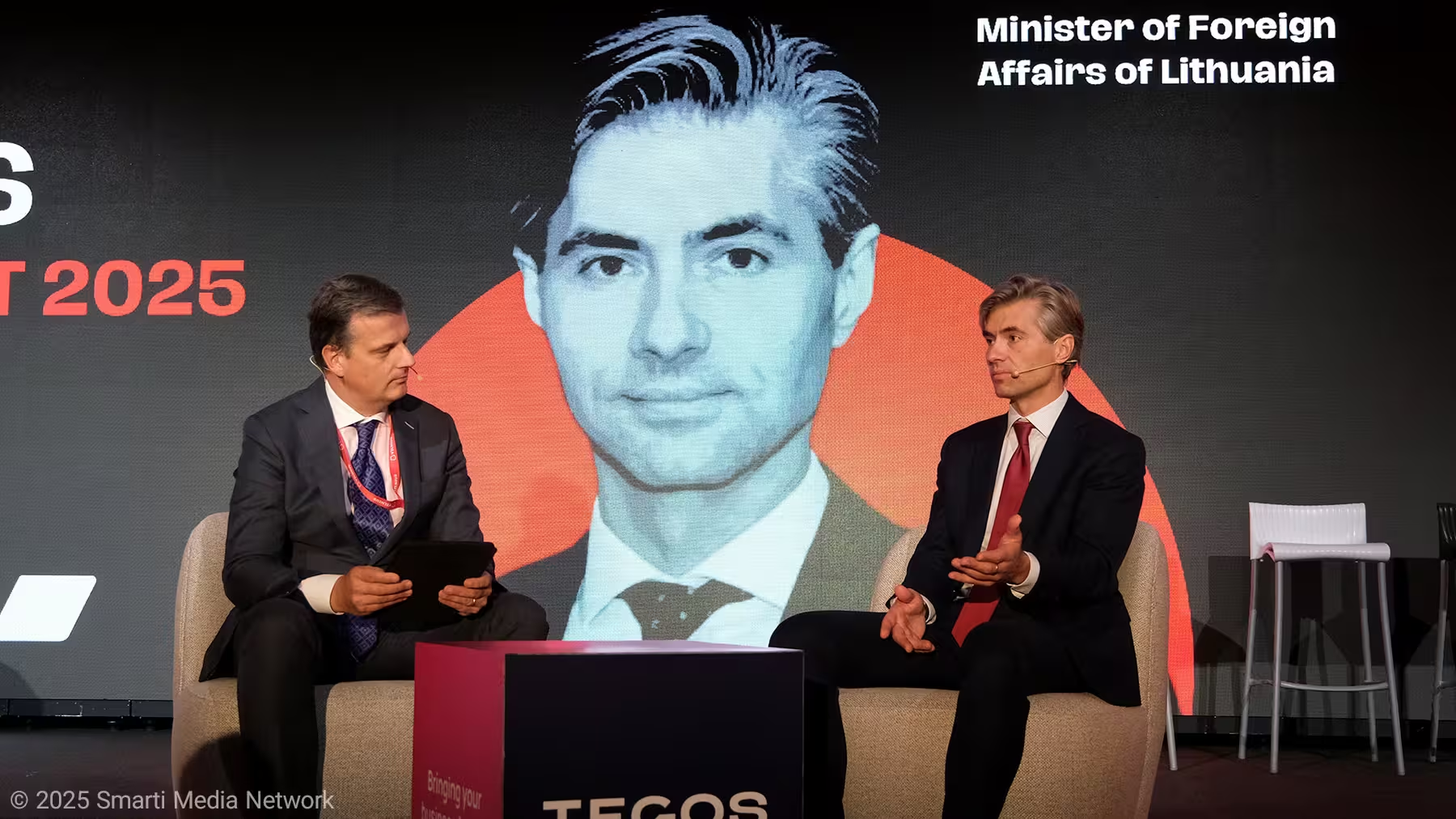
Investor Implications: From Boardroom Questions to Site-Level Decisions
1) Policy predictability
The continuity doctrine reduces country risk premia for multi-year capital deployments. Investors can underwrite not just one set of rules but their consistent enforcement.
2) Built-in resilience
Civil preparedness investment—codified at percentages of GDP—signals credible prioritization of backup power, protected logistics, alternative routes, and cross-border MOUs. This shrinks the downside tail for asset utilization and delivery performance.
3) Project pipelines in Ukraine
For EPCs, systems integrators, proptech/edtech/healthtech providers, facilities managers, and data-platform firms, EU-backed reconstruction is a multi-cycle demand driver. Lithuania’s agencies are trusted prime contractors—a gateway for firms to enter low-risk subcontracts.
4) Trade defense and compliance advantage
Firms with elevated compliance (traceability, ESG, cyber posture) will gain a relative edge as EU enforcement tightens. If your bill of materials includes opaque inputs, start re-sourcing or risk-sharing now.
5) Defense and dual-use opportunity
From sensors, autonomy, secure comms, advanced materials, power solutions to AI mission support—the government’s posture and NATO-aligned demand curve make Lithuania a logical node to manufacture, test, and certify.
6) Capital market signaling
Although this speech focused on foreign policy, there’s a clear throughline: open, rules-based markets and alignment with Nordic standards. For CFOs contemplating local bond issuance or privatization partnerships, the direction of travel remains supportive.
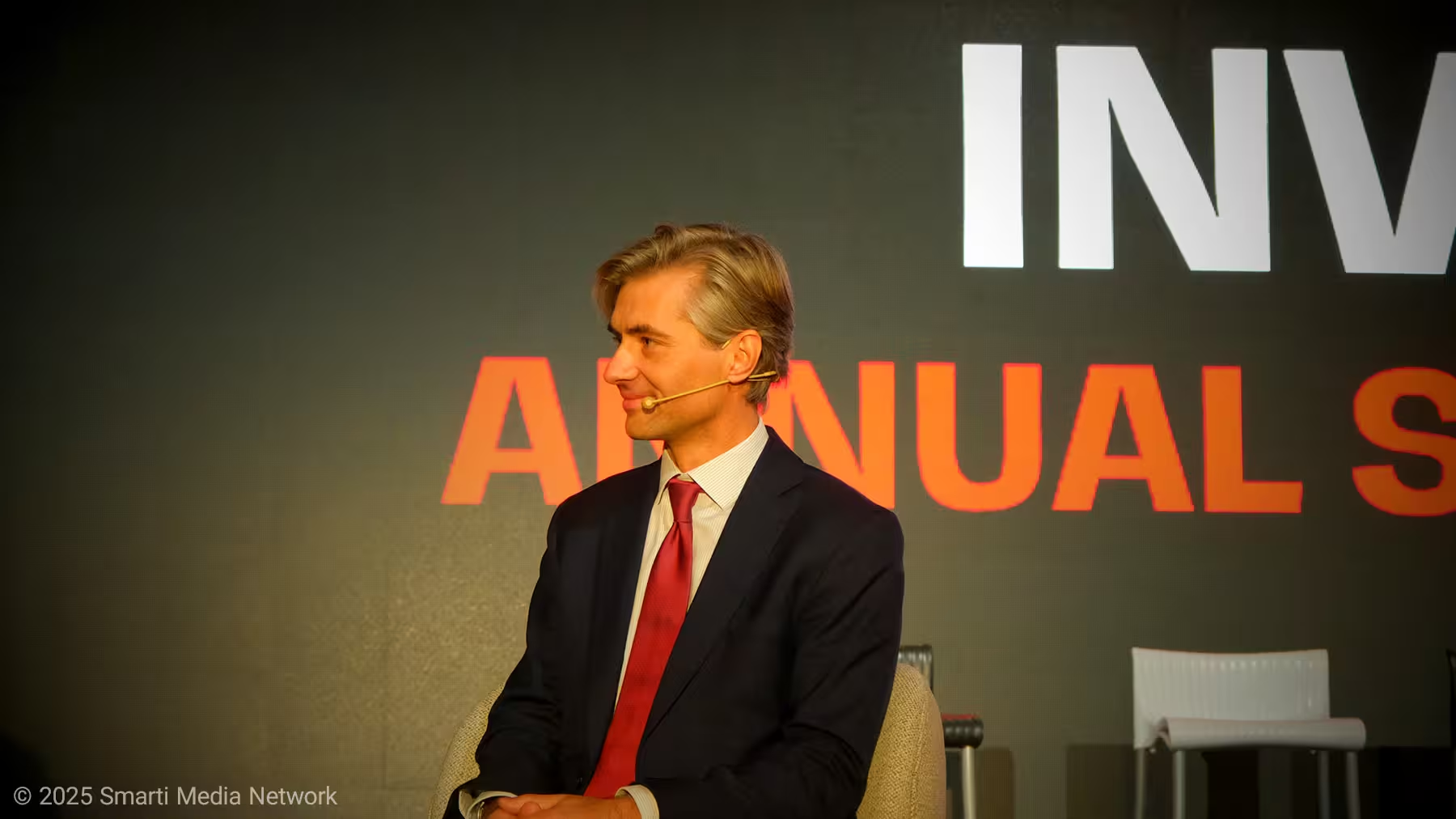
Sector-by-Sector: Where the Policy Touches the P&L
Manufacturing & Advanced Industry
Continuity of Operations: Expect mandated contingency planning and, in some industrial parks, shared resilience infrastructure (redundant power, hardened data links).
EU Trade Defense: Component sourcing will face more origin scrutiny; compliant firms get pricing air cover against dumped imports.
Energy & Infrastructure
Grid resilience funding and cross-border interconnectivity strengthen uptime and balancing.
Reconstruction work in Ukraine will favor consortia with Lithuanian project management roots.
Digital, Cyber, and Data
Civil resilience implies cyber baselining and incident-response interoperability across sectors.
GovTech vendors will see demand for continuity platforms, situational awareness, and secure data sharing.
Defense & Dual-Use
Procurement ecosystems will blend NATO-standard requirements with innovation pathways (pilots, sandboxes, co-dev).
Certification and export controls literacy will be a competitive moat.
Education, Health, and Human Capital
Expect targeted upskilling initiatives keyed to defense/dual-use, energy transition, and digital state capabilities.
Health investments will emphasize access and productivity impacts (e.g., therapies that reduce absenteeism).
Risk Factors and Mitigations: A Board Brief
Geopolitical Escalation
Mitigation: NATO posture, civil resilience spend, and coordinated continuity strategies reduce impact amplitude and recovery time.
Trade Retaliation / Counter-Measures
Mitigation: Anchoring in EU processes, pursuing collective remedies, and designing diversified supplier maps now.
Regulatory Overhang
Mitigation: Government’s evidence-based fix commitment; engage early with documented cases to shape rules.
EU Process Drag
Mitigation: Lithuanian Presidency workstreams are pre-wiring cross-border decision paths on security and single-market friction.

Voice of the Minister: The Lines that Frame the Strategy
While Smarti.News paraphrases for clarity and brevity, the following ideas capture Budrys’s framing:
On continuity: The 20th Government will not pivot for politics’ sake; it will scale what works.
On civil resilience: Security budgets are not just for tanks; they are for keeping businesses open when stress hits.
On Ukraine: Support is not charity; it’s self-preservation for Europe.
On multilateralism: For small states, international law is national armor.
On China: Re-functionalize diplomacy without compromising on security screening or EU trade defense.
On legacy: Turn defense industries into a growth flywheel; repeat the cyber/fintech playbook; reach for space as a dual-use frontier.
Practical Next Steps for Companies
Map exposure to single-source inputs with political risk; design A/B supplier strategies.
Engage ministries early with specific, documented cases of bottlenecks; propose narrow, testable fixes.
Scout defense/dual-use adjacencies in your product stack; prepare NATO-compatible compliance baselines.
Assess Ukraine participation via Lithuanian prime contractors; target pilot projects to build references.
Align crisis playbooks with Lithuania’s civil preparedness framework; include cross-border contingencies.
Strengthen ESG and traceability to benefit as EU trade enforcement tightens.
Conclusion: A Coherent Doctrine for Risky Times
Kęstutis Budrys’s debut on the investor stage offered more than political reassurances; it laid out a coherent doctrine for turning volatility into a competitive advantage: harden the system, diversify dependencies, mobilize alliances, and channel capital into sectors that matter for security and growth. For boards and operating leaders, the signal is clear: Lithuania intends to be a secure, rules-based, and strategically connected platform—one that is prepared for shocks yet biased toward action.


Leave a Comment